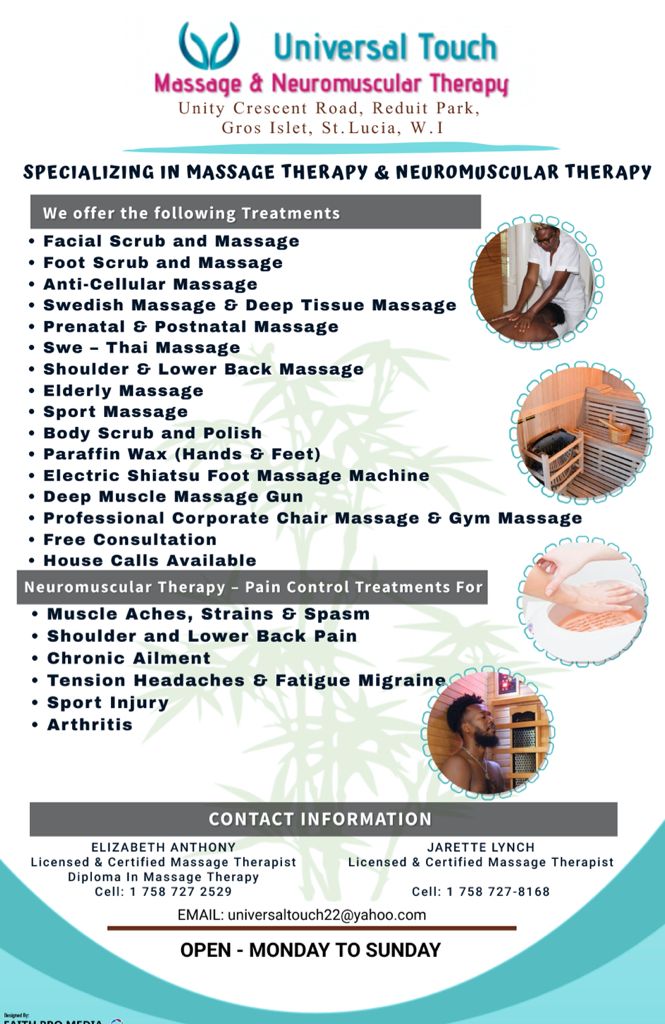12th September 2021
MHMC launches suicide awareness month
By MHMC


PRESS RELEASE : The Department of Psychosocial Services at the Millennium Heights Medical Complex (MHMC), will be collaborating with the Royal Saint Lucia Police Force and the National Youth Council to provide a series of suicide prevention workshops to police officers and suicide awareness support discourses among youth organizations. Over the years, there has been a marked increase in the number of suicides and attempted suicides especially in the youth, and this collaborative effort is aimed at raising awareness, providing counsel, and promoting the FREE services available through the department, one of them being the helpline – 203.
Suicidal thoughts, feelings and attempts are usually an indication that the person is not coping well with a situation. Depending on the severity of the situation or situations, this can be overwhelmingly traumatic to the individual. In many cases, the impact of the events can be mitigated or their overwhelming nature gradually fade if the person is able to make constructive choices.
Through the course of the month, more information will be provided in relation to the awareness programming, to assist the public in understanding the signs of attempted suicide and how to approach potentially suicidal persons. Someone who attempts suicide is often distressed, feel isolated or cannot see any way out of their current situation.
Depending on a person's individual response, risk factors that may contribute to a person feeling suicidal include:
Significant changes in Relationships
- Well-being of self or family member
- Body image
- Job, school, university, house, locality
- Financial situation
- World environment
Significant losses:
- Death of a loved one
- Loss of a valued relationship
- Loss of self esteem or personal expectations
- Loss of employment
Perceived abuse:
- Physical
- Emotional/Psychological
- Sexual
- Social
- Neglect
Typical warning signs which are often exhibited by people who are feeling suicidal include:
- Talking about wanting to die or to kill oneself
- Looking for a way to kill oneself, such as searching online or buying a gun
- Talking about feeling hopeless or having no reason to live
- Talking about feeling trapped or in unbearable pain
- Talking about being a burden to others
- Increasing the use of alcohol or drugs
- Acting anxious or agitated, behaving recklessly
- Sleeping too little or too much
- Withdrawing or feeling isolated
- Showing rage or talking about seeking revenge
- Displaying extreme mood swings
So, what can I do about it?
- Seek out other people who could help
- Suicidal people, like all of us, need love, understanding and care. Listen to them. Then listen some more
- Ask them to promise you that they won't attempt suicide
- Don't try to "rescue" them or to take their responsibilities on board yourself
- Get yourself some support too, as you try to get support for them
- Take them seriously and refer them to someone equipped to help them most effectively, like the call responders on the 24-hour National Suicide Helpline (dial 203). Alternatively, you can also call the Helpline yourself for advice on the situation.
The management and staff of the MHMC expresses its concern and continued support toward suicide awareness and appeal to the public to use the Suicide Prevention Helpline 203.
For more updates, announcements, and new appointments, follow us on Facebook and LinkedIn on @millenniumheightsmedicalcomplex or please email [email protected]

TO RECEIVE NEWS NOTIFICATIONS And Covid NEWS VIA WHATS APP PLEASE SAVE OUR NUMBER AND SEND US A MESSAGE AT 7584896261 AND WE WILL ADD YOU TO OUR LIST




